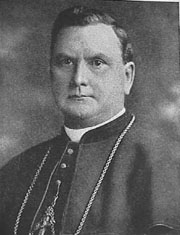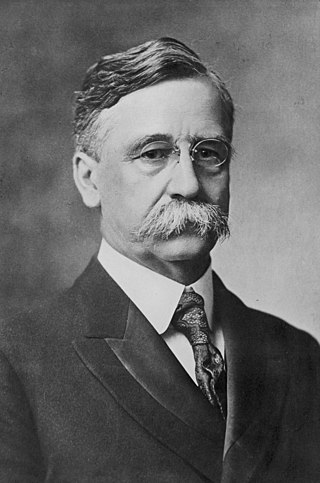This article needs additional citations for verification .(November 2017) |
The German Society of the City of New York was established in 1784 to assist German immigrants in the United States.
This article needs additional citations for verification .(November 2017) |
The German Society of the City of New York was established in 1784 to assist German immigrants in the United States.
The German Society of the City of New York was founded on October 4, 1784, based on the model of the German Society of Pennsylvania in Philadelphia. [1]
Founding members included John Christoph Kunze and Friedrich Wilhelm von Steuben. [2] The association initially supported the German-American churches in New York. [2]
With the introduction of large immigration waves from the 1830s, the German Society dealt with the smooth running of immigration. This included the fact that in Germany, too, the nature and the dangers of emigration were clarified. In addition, the German Society informed the German-Americans in New York about important bureaucratic features of the New World.
From 1837 to 1841, John Jacob Astor was the president of the company and donated $5,000 annually. In his testament he left another $20,000.

John Jacob Astor was a German-born American businessman, merchant, real estate mogul, and investor. Astor made his fortune mainly in a fur trade monopoly, by smuggling opium into China, and by investing in real estate in or around New York City. He was the first prominent member of the Astor family and the first multi-millionaire in the United States.

Henry Cabot Lodge was an American Republican politician, historian, and statesman from Massachusetts. He served in the United States Senate from 1893 to 1924 and is best known for his positions on foreign policy. His successful crusade against Woodrow Wilson's Treaty of Versailles ensured that the United States never joined the League of Nations and his penned conditions against that treaty, known collectively as the Lodge reservations, influenced the structure of the modern United Nations.
The Methodist Episcopal Church (MEC) was the oldest and largest Methodist denomination in the United States from its founding in 1784 until 1939. It was also the first religious denomination in the US to organize itself nationally. In 1939, the MEC reunited with two breakaway Methodist denominations to form the Methodist Church. In 1968, the Methodist Church merged with the Evangelical United Brethren Church to form the United Methodist Church.

German Americans are Americans who have full or partial German ancestry. The 2020 census results showed over 44,978,546 Americans self-identifying as German alone or in combination with another ancestry. This includes 15,447,670 who chose German alone.

James Edward Quigley was a Canadian-born prelate of the Catholic Church. He served as bishop of the Diocese of Buffalo in New York (1897–1903) and archbishop of the Archdiocese of Chicago in Illinois (1903–1915).

Polish Americans are Americans who either have total or partial Polish ancestry, or are citizens of the Republic of Poland. There are an estimated 8.81 million self-identified Polish Americans, representing about 2.67% of the U.S. population, according to the 2021 American Community Survey conducted by the U.S. Census Bureau.

John Laurance was a delegate to the 6th, 7th, and 8th Congresses of the Confederation, a United States representative and United States Senator from New York and a United States district judge of the United States District Court for the District of New York.

Charles William Frederick Dick was a Republican politician from Ohio. He served in the United States House of Representatives and U.S. Senate.

Dutch Americans are Americans of Dutch and Flemish descent whose ancestors came from the Low Countries in the distant past, or from the Netherlands as from 1830 when the Flemish became independent from the United Kingdom of the Netherlands by creating the Kingdom of Belgium. Dutch settlement in the Americas started in 1613 with New Amsterdam, which was exchanged with the English for Suriname at the Treaty of Breda (1667) and renamed New York City. The English split the Dutch colony of New Netherland into two pieces and named them New York and New Jersey. Further waves of immigration occurred in the 19th and 20th centuries.

Carl Robert Osten-Sacken or Carl-Robert Romanovich, Baron von der Osten-Sacken, Baron Osten Sacken was a German-Russian diplomat and entomologist. He served as the Russian consul general in New York City during the American Civil War, living in the United States from 1856 to 1877. He worked on the taxonomy of flies in general and particularly of the family Tipulidae.

William Paul Dillingham was an American attorney and politician from the state of Vermont. A Republican and the son of Congressman and Governor Paul Dillingham, William P. Dillingham served as governor from 1888 to 1890 and United States Senator from 1900 until his death.
Swiss Americans are Americans of Swiss descent.
Rusyn Americans are citizens of the United States of America, with ancestors who were Rusyns, from Carpathian Ruthenia, or neighboring areas of Central Europe. However, some Rusyn Americans, also or instead identify as Ukrainian Americans, Russian Americans, or even Slovak Americans.

Henry Francis Naphen was a U.S. Representative from Massachusetts.

The history of immigration to the United States details the movement of people to the United States from the colonial era to the present day. Throughout U.S. history, the country experienced successive waves of immigration, particularly from Europe and later on from Asia and Latin America. Colonial-era immigrants often repaid the cost of transoceanic transportation by becoming indentured servants in which the new employer paid the ship's captain. In the late 19th century, immigration from China and Japan was restricted. In the 1920s, restrictive immigration quotas were imposed but political refugees had special status. Numerical restrictions ended in 1965. In recent years, the largest numbers of immigrants to the United States have come from Asia and Central America.

Archibald Gracie was a Scottish-born shipping magnate and early American businessman and merchant in New York City and Virginia whose spacious home, Gracie Mansion, now serves as the residence of the Mayor of New York City.
The bibliography of Andrew Dickson White spans his career from 1852, during his junior year at Yale University, through his death in 1918. The primary topics of his works were related to social sciences such as history, government, economics, and international relations. Secondary topics included architecture and educational theory.

The Immigration Act of 1903, also called the Anarchist Exclusion Act, was a law of the United States regulating immigration. It codified previous immigration law, and added four inadmissible classes: anarchists, people with epilepsy, beggars, and importers of prostitutes. It had minimal impact and its provisions related to anarchists were expanded in the Immigration Act of 1918.

Joshua Waddington was a British-American who was one of the founders of the Saint George's Society, the Bank of New York, and was the defendant in the case Rutgers v. Waddington before New York City Mayor's Court.
As of 2018, several firms in the United States rank among the world's biggest publishers of books in terms of revenue: Cengage Learning, HarperCollins, Houghton Mifflin Harcourt, McGraw-Hill Education, Scholastic, Simon & Schuster, and Wiley.
{{cite book}}: CS1 maint: location missing publisher (link)